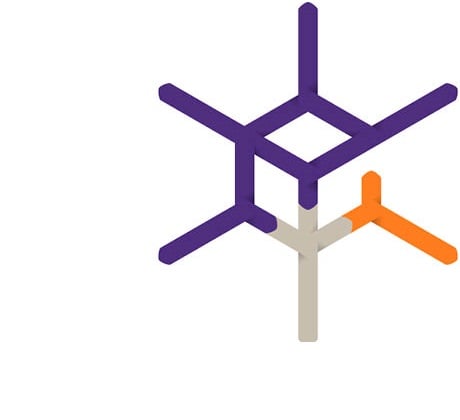-
Why Grant Thornton
Whether you’re growing in one market or many, looking to operate more effectively, managing risk and regulation, or realising stakeholder value, our firms can help.
-
Culture and experience
Grant Thornton’s culture is one of our most valuable assets and has steered us in the right direction for more than 100 years.
-
Global scale and capability
Beyond global scale, we embrace what makes each market unique, local understanding on a global scale.
-
Join our network
In a world that wants more options for high quality services, we differentiate in the market to grow sustainably in today’s rapidly changing environment.
-
Leadership governance and quality
Grant Thornton International Ltd acts as the coordinating entity for member firms in the network with a focus on areas such as strategy, risk, quality monitoring and brand.
-
Africa
24 member firms supporting your business.
-
Americas
31 member firms, covering 44 markets and over 20,000 people.
-
Asia-Pacific
19 member firms with nearly 25,000 people to support you.
-
Europe
53 member firms supporting your business.
-
Middle East
8 member firms supporting your business.
-
Business consulting services
Our business consulting services can help you improve your operational performance and productivity, adding value throughout your growth life cycle.
-
Business process solutions
We can help you identify, understand and manage potential risks to safeguard your business and comply with regulatory requirements.
-
Business risk services
The relationship between a company and its auditor has changed. Organisations must understand and manage risk and seek an appropriate balance between risk and opportunities.
-
Cybersecurity
As organisations become increasingly dependent on digital technology, the opportunities for cyber criminals continue to grow.
-
Forensic services
At Grant Thornton, we have a wealth of knowledge in forensic services and can support you with issues such as dispute resolution, fraud and insurance claims.
-
Mergers and acquisitions
We work with entrepreneurial businesses in the mid-market to help them assess the true commercial potential of their planned acquisition and understand how the purchase might serve their longer-term strategic goals.
-
Recovery and reorganisation
Workable solutions to maximise your value and deliver sustainable recovery.
-
Transactional advisory services
We can support you throughout the transaction process – helping achieve the best possible outcome at the point of the transaction and in the longer term.
-
Valuations
We provide a wide range of services to recovery and reorganisation professionals, companies and their stakeholders.
-
Sustainability advisory
We can assist you with a variety of sustainability advice depending on your needs, ranging from initial strategy development, reporting and compliance support, through to carbon measurement and management.

-
IFRS
At Grant Thornton, our IFRS advisers can help you navigate the complexity of financial reporting from IFRS 1 to IFRS 17 and IAS 1 to IAS 41.
-
Audit quality monitoring
Having a robust process of quality control is one of the most effective ways to guarantee we deliver high-quality services to our clients.
-
Global audit technology
Our global assurance technology platform provides the ability to conduct client acceptance, consultations and all assurance and other attestation engagements.
-
Sustainability assurance
Our sustainability assurance services are based on our global network of specialists, helping you make more efficient decisions for the good of your organisation.

-
Corporate and business tax
Our trusted teams can prepare corporate tax files and ruling requests, support you with deferrals, accounting procedures and legitimate tax benefits.
-
Direct international tax
Our teams have in-depth knowledge of the relationship between domestic and international tax laws.
-
Global mobility services
Through our global organisation of member firms, we support both companies and individuals, providing insightful solutions to minimise the tax burden for both parties.
-
Indirect international tax
Using our finely tuned local knowledge, teams from our global organisation of member firms help you understand and comply with often complex and time-consuming regulations.
-
Transfer pricing
The laws surrounding transfer pricing are becoming ever more complex, as tax affairs of multinational companies are facing scrutiny from media, regulators and the public
-
Africa tax desk
A differentiating solution adapted to the context of your investments in Africa.
-
Sustainability tax
Through our sustainability tax advisory services, we can advise how environmental taxes, incentives, and obligations can impact your progress, requiring alignment with governmental and legislative pressures.

-
 Banking Holding banking to account: the real diversity and inclusion pictureWe explore how the banking sector can continue to attract, retain and nurture women to build a more diverse and inclusive future.
Banking Holding banking to account: the real diversity and inclusion pictureWe explore how the banking sector can continue to attract, retain and nurture women to build a more diverse and inclusive future. -
 Sustainability From voluntary to mandatory ESG: How banks can future-proof their operationsAs we move from voluntary ESG initiatives to mandatory legislation, we explore what the banking sector needs to prioritise.
Sustainability From voluntary to mandatory ESG: How banks can future-proof their operationsAs we move from voluntary ESG initiatives to mandatory legislation, we explore what the banking sector needs to prioritise. -
 IFRS IFRS 9 - Audit of Expected Credit LossesGPPC releases The Auditor’s response to the risks of material misstatement posed by estimates of expected credit losses under IFRS 9
IFRS IFRS 9 - Audit of Expected Credit LossesGPPC releases The Auditor’s response to the risks of material misstatement posed by estimates of expected credit losses under IFRS 9 -
 growthiQ Steering your company to long-term successHistory has something important to tell us about the difficulties of steering a business to long-term success – through seismic shifts in technology, consumer demands and product development. With that in mind it’s unsurprising that over half the world’s largest companies in the early 1900s had shut their doors by the late 1990s. Some, however, have endured.
growthiQ Steering your company to long-term successHistory has something important to tell us about the difficulties of steering a business to long-term success – through seismic shifts in technology, consumer demands and product development. With that in mind it’s unsurprising that over half the world’s largest companies in the early 1900s had shut their doors by the late 1990s. Some, however, have endured.
-
 International Financial Reporting Standards Implementation of IFRS 17 ‘Insurance Contracts’The auditor’s response to the risks of material misstatement arising from estimates made in applying IFRS 17 ‘Insurance Contracts’
International Financial Reporting Standards Implementation of IFRS 17 ‘Insurance Contracts’The auditor’s response to the risks of material misstatement arising from estimates made in applying IFRS 17 ‘Insurance Contracts’ -
 IFRS Get ready for IFRS 17After twenty years of development the IASB has published IFRS 17 ‘Insurance Contracts’, find out more.
IFRS Get ready for IFRS 17After twenty years of development the IASB has published IFRS 17 ‘Insurance Contracts’, find out more.
-
 Global business pulse - industry analysis Mid-market recovery spreads to more industriesThe index results for 13 key industries of the mid-market reveals a very uneven recovery from COVID-19
Global business pulse - industry analysis Mid-market recovery spreads to more industriesThe index results for 13 key industries of the mid-market reveals a very uneven recovery from COVID-19 -
 Global business pulse - industry analysis A very uneven recovery across industriesThe index results for 13 key industries of the mid-market reveals a very uneven recovery from COVID-19
Global business pulse - industry analysis A very uneven recovery across industriesThe index results for 13 key industries of the mid-market reveals a very uneven recovery from COVID-19 -
 Global business pulse - Sector analysis Clear patterns of damage from COVID-19 across the industriesThe index results for 12 key sectors of the mid-market reveal just how much or little the various parts of the economy were impacted by COVID-19.
Global business pulse - Sector analysis Clear patterns of damage from COVID-19 across the industriesThe index results for 12 key sectors of the mid-market reveal just how much or little the various parts of the economy were impacted by COVID-19. -
 Not for profit Mission: possible – putting impact at the heart of charityGlobal charitable continues to decline and charity leaders are increasingly looking at their own unique impact journey.
Not for profit Mission: possible – putting impact at the heart of charityGlobal charitable continues to decline and charity leaders are increasingly looking at their own unique impact journey.
-
 Access to finance Raise finance to invest in changePrepare your business to raise finance to invest in change.
Access to finance Raise finance to invest in changePrepare your business to raise finance to invest in change. -
 Private equity firms Private equity in the mid-market: reshaping strategies for 2021When the global COVID-19 pandemic stormed across the globe in early 2020, the private equity sector was hit hard but deals are coming back to the market.
Private equity firms Private equity in the mid-market: reshaping strategies for 2021When the global COVID-19 pandemic stormed across the globe in early 2020, the private equity sector was hit hard but deals are coming back to the market. -
 Mid-market businesses Getting ready for private equity investmentOur specialists explore how private equity firms are now working with their portfolios and how the mid-market can benefit from investment.
Mid-market businesses Getting ready for private equity investmentOur specialists explore how private equity firms are now working with their portfolios and how the mid-market can benefit from investment. -
 Mid-market businesses Myth-busting private equityNervous about partnering with Private Equity? We explore some of the common myths we come across when speaking to mid-market businesses about PE investment.
Mid-market businesses Myth-busting private equityNervous about partnering with Private Equity? We explore some of the common myths we come across when speaking to mid-market businesses about PE investment.
-
 Public sector Helping build the government of tomorrow, todayLearn about the Grant Thornton US public sector team.
Public sector Helping build the government of tomorrow, todayLearn about the Grant Thornton US public sector team. -
 Global business pulse - industry analysis Mid-market recovery spreads to more industriesThe index results for 13 key industries of the mid-market reveals a very uneven recovery from COVID-19
Global business pulse - industry analysis Mid-market recovery spreads to more industriesThe index results for 13 key industries of the mid-market reveals a very uneven recovery from COVID-19 -
 Global business pulse - industry analysis A very uneven recovery across industriesThe index results for 13 key industries of the mid-market reveals a very uneven recovery from COVID-19
Global business pulse - industry analysis A very uneven recovery across industriesThe index results for 13 key industries of the mid-market reveals a very uneven recovery from COVID-19 -
 Global business pulse - Sector analysis Clear patterns of damage from COVID-19 across the industriesThe index results for 12 key sectors of the mid-market reveal just how much or little the various parts of the economy were impacted by COVID-19.
Global business pulse - Sector analysis Clear patterns of damage from COVID-19 across the industriesThe index results for 12 key sectors of the mid-market reveal just how much or little the various parts of the economy were impacted by COVID-19.
-
 Industries European Real Estate PodcastJessica Patel, Tax Partner at Grant Thornton UK speaks with tax partners and directors across the network to share their insights on the real estate market and some of the challenges.
Industries European Real Estate PodcastJessica Patel, Tax Partner at Grant Thornton UK speaks with tax partners and directors across the network to share their insights on the real estate market and some of the challenges. -
 Industries European Real Estate PodcastJessica Patel, Tax Partner at Grant Thornton UK speaks with tax partners and directors across the network to share their insights on the real estate market and some of the challenges.
Industries European Real Estate PodcastJessica Patel, Tax Partner at Grant Thornton UK speaks with tax partners and directors across the network to share their insights on the real estate market and some of the challenges. -
 Global business pulse - industry analysis Mid-market recovery spreads to more industriesThe index results for 13 key industries of the mid-market reveals a very uneven recovery from COVID-19
Global business pulse - industry analysis Mid-market recovery spreads to more industriesThe index results for 13 key industries of the mid-market reveals a very uneven recovery from COVID-19 -
 Global business pulse - industry analysis A very uneven recovery across industriesThe index results for 13 key industries of the mid-market reveals a very uneven recovery from COVID-19
Global business pulse - industry analysis A very uneven recovery across industriesThe index results for 13 key industries of the mid-market reveals a very uneven recovery from COVID-19
-

-
 Global business pulse - industry analysis Mid-market recovery spreads to more industriesThe index results for 13 key industries of the mid-market reveals a very uneven recovery from COVID-19
Global business pulse - industry analysis Mid-market recovery spreads to more industriesThe index results for 13 key industries of the mid-market reveals a very uneven recovery from COVID-19 -
 Global business pulse - industry analysis A very uneven recovery across industriesThe index results for 13 key industries of the mid-market reveals a very uneven recovery from COVID-19
Global business pulse - industry analysis A very uneven recovery across industriesThe index results for 13 key industries of the mid-market reveals a very uneven recovery from COVID-19 -
 Retail How retail is positioning for successCOVID-19 provided some hard lessons for the retail industry. It is time to turn those into sustainable and well executed growth strategies in 2021.
Retail How retail is positioning for successCOVID-19 provided some hard lessons for the retail industry. It is time to turn those into sustainable and well executed growth strategies in 2021.
-
 Technology Mid-market tech companies lead the way on diversity and inclusionWe explore how the mid-market tech sector can continue to build and nurture a culture that’s increasingly more diverse and inclusive for women.
Technology Mid-market tech companies lead the way on diversity and inclusionWe explore how the mid-market tech sector can continue to build and nurture a culture that’s increasingly more diverse and inclusive for women. -
 Tax Resetting global tax rules after the pandemicBusinesses are seeing rising challenges, and finance heads are dealing with a range of new measures. To say the next 12 months are critical for businesses is an understatement.
Tax Resetting global tax rules after the pandemicBusinesses are seeing rising challenges, and finance heads are dealing with a range of new measures. To say the next 12 months are critical for businesses is an understatement. -
 TECHNOLOGY International tax reform: the potential impact on the technology industryIn this article, we’ve summarised key elements of the global tax reform proposals, their potential impact on technology industry and advice from our digital tax specialists on what technology companies can do to prepare.
TECHNOLOGY International tax reform: the potential impact on the technology industryIn this article, we’ve summarised key elements of the global tax reform proposals, their potential impact on technology industry and advice from our digital tax specialists on what technology companies can do to prepare. -
 TMT TMT industry: Fully charged or on standby?Our research revealed five key trends that resonated with Technology, Media and Telecoms (TMT) industry leaders around the world. We asked a panel of our experts from UK, US, India Ireland and Germany, to give us their reaction to the findings.
TMT TMT industry: Fully charged or on standby?Our research revealed five key trends that resonated with Technology, Media and Telecoms (TMT) industry leaders around the world. We asked a panel of our experts from UK, US, India Ireland and Germany, to give us their reaction to the findings.
-
 TMT TMT industry: Fully charged or on standby?Our research revealed five key trends that resonated with Technology, Media and Telecoms (TMT) industry leaders around the world. We asked a panel of our experts from UK, US, India Ireland and Germany, to give us their reaction to the findings.
TMT TMT industry: Fully charged or on standby?Our research revealed five key trends that resonated with Technology, Media and Telecoms (TMT) industry leaders around the world. We asked a panel of our experts from UK, US, India Ireland and Germany, to give us their reaction to the findings. -
 Cybersecurity One size fits nothingTechnology companies must adopt a new approach to digital risk: those that successfully develop a reputation for digital trust by demonstrating an unwavering commitment to cyber security and data privacy will be able to carve out a competitive advantage.
Cybersecurity One size fits nothingTechnology companies must adopt a new approach to digital risk: those that successfully develop a reputation for digital trust by demonstrating an unwavering commitment to cyber security and data privacy will be able to carve out a competitive advantage. -
 Technology, media & telecommunications Why it’s time for a 5G reality checkFigures suggest the mobile sector is maturing. While data usage continues to soar, mobile revenues are expected to flatten out over the next few years.
Technology, media & telecommunications Why it’s time for a 5G reality checkFigures suggest the mobile sector is maturing. While data usage continues to soar, mobile revenues are expected to flatten out over the next few years. -
 GrowthiQ Is blockchain right for your business?Blockchain has been seized upon by the financial services sector, where it is playing a crucial role in tracking and authenticating transactions.
GrowthiQ Is blockchain right for your business?Blockchain has been seized upon by the financial services sector, where it is playing a crucial role in tracking and authenticating transactions.
-
 International business Mid-market businesses lifted by rising tide of optimismOptimism among global mid-market business leaders rose to 67% in the first half of this year and they are markedly more optimistic about their prospects with global optimism having increased by 8%.
International business Mid-market businesses lifted by rising tide of optimismOptimism among global mid-market business leaders rose to 67% in the first half of this year and they are markedly more optimistic about their prospects with global optimism having increased by 8%. -
 Global business pulse - industry analysis Mid-market recovery spreads to more industriesThe index results for 13 key industries of the mid-market reveals a very uneven recovery from COVID-19
Global business pulse - industry analysis Mid-market recovery spreads to more industriesThe index results for 13 key industries of the mid-market reveals a very uneven recovery from COVID-19 -
 Hotels COVID-19: Checking in with the hotel industry one year onCOVID-19 provided some hard lessons for the hotel sector. It is time to turn those into sustainable and well executed growth strategies.
Hotels COVID-19: Checking in with the hotel industry one year onCOVID-19 provided some hard lessons for the hotel sector. It is time to turn those into sustainable and well executed growth strategies. -
 Global business pulse - industry analysis A very uneven recovery across industriesThe index results for 13 key industries of the mid-market reveals a very uneven recovery from COVID-19
Global business pulse - industry analysis A very uneven recovery across industriesThe index results for 13 key industries of the mid-market reveals a very uneven recovery from COVID-19
- By topic
-
Women in Business 2025
For 21 years, the Women in Business report has tracked the proportion of women in senior roles in the mid-market. Progress has been made but with gender equity over 25 years away, that isn’t soon enough.
-
Scaling sustainability
Mid-market firms are scaling sustainability for growth, not just compliance. Grant Thornton’s International Business Report (IBR) 2025 report reveals how sustainability investments are driving profitability, resilience and global expansion — despite regulatory shifts and political uncertainty.
-
Thriving through disruption
Instability has come to define the global business landscape and the ability for mid-market firms to thrive through disruption is becoming a key differentiator.
-
Trade in transition
A shifting global trade landscape is contributing to rising uncertainty, but could it also unlock new opportunites for adaptable mid-market businesses while larger companies opt to wait and see?
-
CFO success: Inspiring change in female mid-market leadership
Women holding the CFO role is nearing parity – reshaping finance leadership and potentially helping increase female representation across all senior roles.
-
International business: Mid-market growth and expansion
The mid-market looks to international business opportunities for growth.
-
Women in Business 2025: Impacting the missed generation
The 2025 Women in Business report explores the external pressures and internal drivers that impact gender diversity in senior roles in the mid-market.
-
CFO success: Inspiring change in female mid-market leadership
Women holding the CFO role is nearing parity – reshaping finance leadership and potentially helping increase female representation across all senior roles.
-
Women in tech: A pathway to gender balance in top tech roles
Grant Thornton’s 2024 Women in Business data suggests we are far from achieving parity within the mid-market technology sector.
-
Women in leadership: a pathway to better performance
What makes the benefits of gender parity compelling is the impact it can have on commercial performance.
-
Women in Business 2024
2024 marks the 20th year of Women in business where we monitor and measure the proportion of women occupying senior management roles around the world.
-
Women in business: Regional picture
We saw an increase in the percentage of senior management roles held by women, on a global level, but there are some significant regional and country variations.
-
Pathways to Parity: Leading the way
To push towards parity of senior management roles held by women, who leads within an organisation is vital.
-
Generating real change with a long-term focus
The most successful strategy to achieve parity of women in senior management is one which stands alone, independent of an ESG strategy.
-
People at the heart of great business
Businesses have started to put guidelines and incentives in place, focused on driving employees back to the office.
-
Scaling sustainability
Mid-market firms are scaling sustainability for growth, not just compliance. Grant Thornton’s International Business Report (IBR) 2025 report reveals how sustainability investments are driving profitability, resilience and global expansion — despite regulatory shifts and political uncertainty.
-
The journey to a sustainable future
The world needs a sustainable mid-market. It’s vital to economies, societies and the planet. Businesses, governments, and other stakeholders must work collaboratively to make sure this vital part of the world economy succeeds.
-
Ten considerations for preparing TCFD climate-related financial disclosures
Insights for organisations preparing to implement the International Sustainability Standards Board (ISSB)’s Standards.
-
COP28
COP28 was the first time there has been a global stocktake on progress against the Paris Agreement.
-
Transition Plan Taskforce publishes its final disclosure framework
As organisations in the private sector make commitments and plans to reach net zero, there's a growing need for stakeholders to be able to assess the credibility of their transition plans.
-
Thriving through disruption
Instability has come to define the global business landscape and the ability for mid-market firms to thrive through disruption is becoming a key differentiator.
-
Trade in transition
A shifting global trade landscape is contributing to rising uncertainty, but could it also unlock new opportunites for adaptable mid-market businesses while larger companies opt to wait and see?
-
International business: Mid-market growth and expansion
The mid-market looks to international business opportunities for growth.
-
Top five constraints to international business in the mid-market
Top five major constraints that are testing the mid-market’s ability to grow their businesses internationally.
-
Brand and international marketing – breaking global barriers
Brand has been identified as a key driver of mid-market success when looking to grow and develop international business.
-
The key to international business: Investing in people
How can recruitment and retention help grow international business?
-
Building resilience in international business
Evolving supply chains and trade patterns amid ongoing global uncertainty.
-
Example Financial Statements
The 2025 Interim Financial Statements provide general guidance on preparing interim financial statements in accordance with IFRS Accounting Standards.
-
IFRS 8
Our ‘Insights into IFRS 8’ series considers some key implementation issues and includes interpretational guidance in certain problematic areas.
-
IFRS 16
Are you ready for IFRS 16? This series of insights will help you prepare.
-
IAS 36
Insights into IAS 36 provides assistance for preparers of financial statements and help where confusion has been seen in practice.
-
IFRS 17
Explaining the key features of the Standard and providing insights into its application and impact.
-
Pillar 2
Key updates and support for the global implementation of Pillar 2.
-
Global expatriate tax guide
Growing businesses that send their greatest assets – their people – overseas to work can face certain tax burdens, our global guide highlights the common tax rates and issues.
-
International indirect tax guide
Navigating the global VAT, GST and sales tax landscape.
-
Global transfer pricing guide
Helping you easily find everything you need to know about the rules and regulations regarding transfer pricing and Country by Country reporting for every country you do business with.
Despite weaker global optimism and increasing trade barriers, technology and growth potential are driving businesses internationally.
Companies expanding into new markets have always needed to keep an eye on two horizons: the long-term goals and the short-term challenges. In today's rapidly changing trade environment, where uncertainty dominates, that twin focus needs to be sharper than ever.
 Francesca Lagerberg, global leader of network capabilities at Grant Thornton, says: “Businesses today are conceived with global ambitions as technology rolls back many of the obstacles that once hindered international growth. While this trend is set to continue, businesses have to deal with a multitude of political and economic factors instead, most recently in the US/China trade war, and the threat of increasing protectionism.”
Francesca Lagerberg, global leader of network capabilities at Grant Thornton, says: “Businesses today are conceived with global ambitions as technology rolls back many of the obstacles that once hindered international growth. While this trend is set to continue, businesses have to deal with a multitude of political and economic factors instead, most recently in the US/China trade war, and the threat of increasing protectionism.”
This paradox is highlighted in our latest International Business Report (IBR). While net global optimism continued to decline in H1 2019 to 32%, with economic and political uncertainty weighing on sentiment, net export expectations for the next 12 months held up well, staying unchanged at 21%. There were even modest increases among ASEAN and North American countries, up 6pp and 4pp respectively.
In this article, we explore the benefits of taking a business international and the barriers they are encountering. We share how thriving international businesses balance long-term planning with agile decision making and models that enable them to respond to the ever-changing market dynamics.
Reaping the benefits of international expansion
Robust expectations for international growth can be accounted for in several ways.
 In the first instance, the constraints of domestic and existing markets will always prompt businesses to grow internationally. Paz Malubay, Head of Business Processing Outsourcing at Grant Thornton Philippines, says: "On one level, by expanding into new markets you are reducing the risk of things not going quite so well in your existing markets. Growing businesses need to go global or find themselves confined."
In the first instance, the constraints of domestic and existing markets will always prompt businesses to grow internationally. Paz Malubay, Head of Business Processing Outsourcing at Grant Thornton Philippines, says: "On one level, by expanding into new markets you are reducing the risk of things not going quite so well in your existing markets. Growing businesses need to go global or find themselves confined."
International expansion offers obvious revenue-building opportunities. The growing middle classes in emerging markets – particularly Asia-Pacific – promise increasing growth; successful businesses want to establish themselves there early to meet the demands of the market and get ahead of their competitors.
 Andrew Dickson, International Liaison Director for Grant Thornton Austria, says: "When you look at the global supply chain, you want to be a step ahead of the market and make sure you're there set up and ready when new clients come."
Andrew Dickson, International Liaison Director for Grant Thornton Austria, says: "When you look at the global supply chain, you want to be a step ahead of the market and make sure you're there set up and ready when new clients come."
Beyond just achieving more sales, building a presence in new markets can benefit businesses by providing access to finance, supportive tax regimes and intellectual property, as well as laying a strategic stepping-stone for further expansion into the region. Malubay says: "Businesses get different inputs from new markets. There are constant learning opportunities."
 Access to new talent pools is another factor. Dr Tim Klatte, Head of Shanghai Forensic Services at Grant Thornton China, says: “The executive talent in China continues to become sharper and better. The generation that studied overseas has moved up the ranks and are now in upper and middle management – that’s something Western companies recognise.”
Access to new talent pools is another factor. Dr Tim Klatte, Head of Shanghai Forensic Services at Grant Thornton China, says: “The executive talent in China continues to become sharper and better. The generation that studied overseas has moved up the ranks and are now in upper and middle management – that’s something Western companies recognise.”
Importantly, the urge to go global is underpinned by a mindset that international growth is achievable.

Simon Littlewood, Head of Growth Services at Grant Thornton UK, explains: "There are so many examples of businesses who have been successfully trading overseas, or for whom international barriers don't make a difference, that there's an underlying confidence in approaching international trade."
Nonetheless, each new market can feel like a step into the unknown. While businesses may already have a presence across the supply chain, a lack of familiarity with the territory is not a challenge that businesses should take lightly. Mixed with this, is the uncertainty in the current trading environment, with the latest IBR data showing economic uncertainty as a constraint on growth at net 46%. Businesses that are going global have their work cut out.
Overcoming the barriers to international growth
While businesses are driven by what is possible, political barriers to entry are on the rise. The European Commission identified 45 new trade barriers put in place in countries outside the EU in 2018, bringing the total to a record high of 425 measures in 59 different countries.[1]
Meanwhile, in the latest IBR survey, asked what the most significant external barriers to international expansion were, 25% of business leaders cited trade tariffs, 23% cited regulatory restrictions, 20% bureaucratic complexity and 20% political uncertainty.
"The hardest thing to deal with is uncertainty," says Littlewood. "Where you have certainty, almost whatever the tariff is, it allows you to respond. You can work up a mitigation for that, whether that's around your pricing or something else."
 Christoph Schmidl, Head of Outsourcing at Grant Thornton Austria, says: "Within the EU the uncertainty of Brexit is challenging, as are all the trade disputes around the world. It gets tough for a company to calculate the risks. If businesses are thinking about entering a new market, they are deferring the decision until there is clarity."
Christoph Schmidl, Head of Outsourcing at Grant Thornton Austria, says: "Within the EU the uncertainty of Brexit is challenging, as are all the trade disputes around the world. It gets tough for a company to calculate the risks. If businesses are thinking about entering a new market, they are deferring the decision until there is clarity."
There are alternative approaches. Where there is a high degree of uncertainty, business may look to enter using a trading partner or possibly even a licencing arrangement with an existing supplier.
The necessity and the appetite to do business in a region will often overcome political and geopolitical storms or cycles, says Dickson. "It’s rarely plain sailing when entering new markets with business cycles sometimes accentuating market entry barriers. In terms of red tape, it's often a fact of doing business. You have it everywhere and you have it more in some countries than others. You have to factor it in. Businesses should work very closely with embassies, trade councils and chambers of commerce who can help navigate complexity around regulation and red tape."
Erste Bank is a business that executed a sustainable strategy through its expansion into central and eastern Europe. Schmidl says: "They went early, they were courageous and they went properly. There was a clear financing gap for businesses and people who wanted to access a new type of fund, which Erste Bank was able to fill. They positioned themselves as a strong Austrian bank teaming up with strong local partners in these markets and differentiated themselves from purely domestic banks."
One Global Fortune 500 US manufacturing company has been committed to the China market for several decades. Klatte says: “They’ve invested over the long game, and they’ve adapted to follow the model of China’s development and progress. As China has developed and matured, so has the business model in serving China.” When this company first came to China, they were offshoring exporting back to the US for cost-efficient strategies.
Then as China moved and transferred into more of a consumer market, they diversified their purpose. In recent years the company has opened several plants, formed key customer partnerships, joint ventures and strategic agreements to accelerate growth in the country. In 2017 it opened its Asia Pacific regional headquarters and the second global headquarters in Shanghai.
It's also valuable to bring in people from different industries who are already trading in your potential markets and take soundings from them about their operations. Littlewood says: “You take the business planning, the market analysis, and you blend that with direct experience. Your strategy can be informed by people who’ve actually been building and developing businesses on the ground.”
Using technology to extend your reach
While politics and economics exacerbate the challenges in the current climate, the inexorable rise of technology has facilitated trade at an unprecedented rate in recent years. Data from IBR shows that global technology investment intentions held up well in H1 at net 43%, while in financial and professional services, investment intentions were up 10pp and 6pp respectively.
 Fergus Condon, global head of technology, Grant Thornton, believes the most critical development has been the cloud and its professionalisation over the past three years. Adoption of the cloud has been steep; revenue from global public cloud computing market is set to reach $258 billion in 2019, up from $154 billion in 2017.[2]
Fergus Condon, global head of technology, Grant Thornton, believes the most critical development has been the cloud and its professionalisation over the past three years. Adoption of the cloud has been steep; revenue from global public cloud computing market is set to reach $258 billion in 2019, up from $154 billion in 2017.[2]
One reason why the cloud is so important is that it provides a stack of different products with a low-cost infrastructure allowing businesses to reach overseas markets very quickly. Condon says:
"It's the backbone that allows many other technologies to happen. And it is the technology that has, in effect, made every business a global business from day one if they choose to be.
"One might argue that even if they don't choose to be, they need to be, because even if you consider yourself to be only a domestic business, you’ll most likely be competing with somebody from a different jurisdiction providing a similar service or a product in your home country. If they're using cloud technology to make themselves global, then you're at an immediate disadvantage."
CrossKnowledge is a French-based digital learning company that provides distance learning solutions to help businesses train their employees. It was an early adopter of the cloud and chose to develop software as a service (SaaS) in 2009, allowing it to modify its cost structure and expand its reach to international clients. Within a few years, it increased its users from around 500,000 to more than five million across six continents.[3]
As a critical piece of infrastructure, the cloud has allowed for other trade enhancing tools such as compliance software and smart contracts, that can cut down some of the administration time and cost from business.
Condon believes the next big transformative piece of technology could be 5G and, coupled with the cloud, robotics and AI, it will potentially allow all sorts of medical or engineering procedures to be done remotely with precision in real-time.
Dickson says: "One of the challenges for firms looking to expand internationally say 10 years ago was transparency. Technology now enables you to see the very smallest detail of any operating activity or process in the world in real-time, from the comfort of your headquarters, whether that's in Vienna, Silicon Valley or China. They enable exporting companies to monitor, manage and intervene if necessary."
Understanding your customers when you move to new markets is critical, which is why cultural differences can present a barrier. Littlewood says: "One of the key areas in which technology has enabled international business is helping to integrate design, adding value at every point in the customer journey. Where there is a gap, technology can enable. For instance, training of local people or holding distributed global catch-ups every week via Skype or Google groups. Technology enables the focus on customer experience and the ability for customers to feedback how they're feeling about the service you've provided."
Choosing the right international expansion route for you
Businesses of all descriptions can seek out different models for market entry that are right for them in that location. But all of them, Lagerberg says, need to be for the long term. "It will need to have a robust investment plan behind it because you only enter a market once. If you're going to do it properly, you need a flexible and scalable business model. Uncertainty and events happen. You need to be able to see how you scale up when the times are good and know what to do when conditions change."
Speak to your local Grant Thornton adviser to discuss your international growth strategy and find the right approach to expanding your business in new markets.
[1] European Commission's Trade and Investment Barriers Report, June 2019
